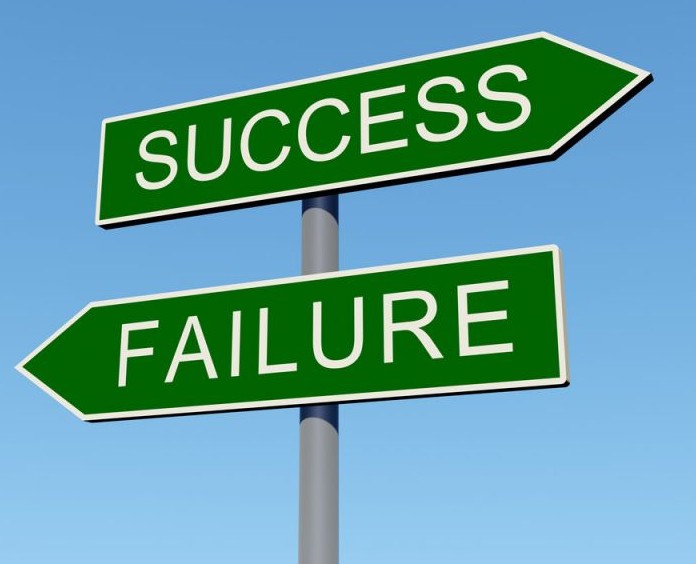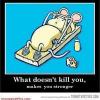How To: Get Back on Track and Stay There

How To: Get Back on Track and Stay There
Are you finding yourself at over a year out and now you find yourself struggling?
Do you miss the excitement that you first had when you had post op surgery while the weight seemed to melt away?
If this is describing you, then I want you to listen up… you are not alone. In fact, I’d say that probably all of us post-operative surgeries have felt this way at one time or another. The difference between all of us is how we respond and how quickly we can hit the ground running again after a setback.
So then, what are those who are successful doing differently compared to those who are struggling more? I have been doing extensive research in the last 6 months and I’m going to share with you what I have discovered. I’m hopeful that it will help everyone out there, because none of us are failures. If we have a setback, we MUST forgive ourselves and fight to get back up. The only time one can be determined as a failure is if they simply give up. As long as you don’t give up, you still have a chance.
Weighing In:
I’ll be the first to tell you that your self-worth has nothing to do with the number on the scale. That said, the scale never lies, but you just have to determine what it is telling you. It will let you know when you have not been on track, that’s for sure. During my weight loss phase post op, I never went more than 10 days on a stall. I’d sometimes fluctuate up a Lb. or two due to hormones and water retention but it was the scale telling me I needed to do two things, drink more water which is a natural diuretic and second reduce my sodium intake. I tend to crave saltier foods at that time and no, the scale did not lie one time.
Sodium is a major culprit in water retention, not only that if you have high blood pressure you will always want to be mindful of how much you are getting in. Someone with HBP should keep their daily total to 1,800mg or less per day. A normal person should be around 2,400mg per day or less.
Back to weighing in however, doing so at the same time of day daily, weekly or monthly (whichever you personally prefer) is really the best way to measure the difference between your last weigh in. Again, do not allow the scale to crash your mood. It is a measure of success or changes that might need to be made. But it won’t lie to you! If you are up 5 Lbs. then likely you need to put on the brakes somewhere and get back to basics. Put a limit on how much you will allow yourself to weigh on your scale. You decide what that number is, as long as it’s a healthy number for you.
The WORST thing you can do regarding staying on track is ignoring your scale altogether. It has to be a part of your regimen because take it from me, it is much easier to lose a 5 Lb. gain than to realize you have gained 40 and desperately need to stop the gaining in its tracks. If you have been ignoring the scale then it’s far beyond time to stop lying to yourself and check the damage. In the smaller sizes it only takes 7-10 Lbs to go up a size. Do not wait until your clothes feel too tight, because by then you probably have already gained that much.
Diet:
Diet: di·et1
noun
noun: diet; plural noun: diets
1.
the kinds of food that a person, animal, or community habitually eats. (Google Definition)
What does your Surgeon and/or Medical staffs say about this? Did they leave you with any kind of eating plan before you left from your hospital stay? The majorities of all of the journals I’ve ever read regarding post op diet plans are extremely similar to one another, give or take a few variations on when to move to the next step in foods. I’m talking about long term eating however, not the liquids or soft foods phases, but more what and how to eat as a Weight Loss Surgery patient once your stomach has healed.
Back in 2011 when I was being asked by numerous members on the website how I was able to maintain my weight so well I decided to create a thread called the Basics Bootcamp. It was a regimen I held close to me if I felt I was falling off track and it helped me to stay at goal for nearly 3 years. I recently have made a bit of a revision to it knowing what I know now regarding nutrition and health sciences. I’ve been studying Nutrition and Health for a while now as well as speaking to many Bariatric Registered Dieticians and Nutritionists. But it still has the basic concepts which are: We do not need to eat so much sugar, we do not need to eat so much salt, we need to focus on protein first and we need to eat our fruits and vegetables. We especially need to be sure we are getting in our minimum of water every day.
Sound simple enough? It should be but we have to deal with head hunger too. ![]()
Indulging in sugar can become a slippery slope. Some people can do much better at moderation of these types of foods than others. I am not one of them. I find that if I abstain from junk food all together I do not think about eating it as much. But once I eat that first bite it feels almost uncontrollable to stop when I should. I continue to crave it for a week or more but then as time goes on the cravings do diminish once again. It all comes down to knowing how YOU react to them and recognizing these behaviors. Getting in tune with your personal triggers and avoiding them is one of the best ways to both get back on track and to stay there. When you hear that sound in your head that says “It’s okay, other people do it and they are okay. Go ahead, you’ve been good, you deserve it.” Realize this voice is a liar and if you listen you will likely find yourself back in square one.
Anyhow, here is the thread if you’re looking to kick start getting back on track: http://www.bariatricpal.com/topic/306411-basics-bootcamp-v2-getting-back-on-track/#entry3459464
Exercise:
Working out... Does everyone really need to do this? Even if you’ve lost weight really great in the beginning? The answer is definitely YES. Everyone should have some kind of exercise regimen tailored to them, but no matter what everyone should be doing something. Maybe all you can do is sit on the couch and do leg lifts. Then do that. Maybe you’re very advanced and you can run marathons… good for you! But do it and don’t stop. It takes a long time to become conditioned enough to be advanced but only a matter of weeks to fall all the way back to level 1.
According to the Mayo Clinic standard adults should get 150 minutes of moderate aerobic exercise every week, or 75 minutes of vigorous aerobic exercise weekly. Break that up into 21 minutes per day if you have to, but just be sure to do it. This is a general guide and a good one to follow, especially if you are just starting up or starting again.
The secret is figuring out how to stay there is to find something you like to do. You don’t have to train to run a marathon if you hate running. All that will do is burn you out and likely you will want to give up because it does not meet your fancy. Keep searching and doing new activities. Even brisk outside walking is considered moderate aerobic activity. I personally love it; I can treat it as my getaway at work. I put on my head phones to my favorite tracks and just let my mind wander to another place and relax. Yes, I love it so much I find it more relaxing than tiring. I breathe the fresh air and let the sun soak in. Believe me there are so many choices out there, you only need to find your favorites to keep you coming back.
If you are doing this for reasons such as health, you will want to add in your workout. That’s not the only thing working out is good for however, it can help tighten your loose skin, toning can help fill it out. Also, being able to withstand longer periods of workout can help with simply being in a good mood. It’s a great stress reliever.
It’s all mental:
Yes, it really is. Your attitude will always be the driving force to whether you become a success and especially if you stay a success. How do you perceive yourself? Do you see yourself as worthy of being healthy, active, and happy and at a reasonable weight?
Celebrate every pound you are down, no one pound deserves more praise than another. Lose the word “only” or “but” when describing how well you’re doing. It is okay to feel good about yourself and shout it out to the world! Take periodic progress photos so on days you’re feeling down, look at them and see how far you have come. Take as many photos as you like! It is not a bad thing.
Another rule to hold dear is to ALWAYS forgive yourself, get back up and keep fighting. A baby never learned to walk after his first step. It took many try’s, stumbles and falls – but the baby keeps getting back up and builds those leg muscles until it can walk without effort.
One last thing, NEVER compare yourself and your journey to anyone else!! You should only compete with who you were yesterday. ![]()
Struggling has quite a bit to do with how you feel about yourself, and how you feel about yourself will have everything to do with how often you’re struggling. Stay positive, always. Every time!
“If you think you are beaten, you are;
If you think you dare not, you don't.
If you'd like to win, but think you can't
It's almost a cinch you won't.
If you think you'll lose, you've lost,
For out in the world we find
Success being with a fellow's will;
It's all in the state of mind.
If you think you're outclassed, you are:
You've got to think high to rise.
You've got to be sure of yourself before
You can ever win a prize.
Life's battles don't always go
To the stronger or faster man,
But soon or late the man who wins
Is the one who thinks he can.”
― Walter D. Wintle
Great, great article Irene. Follow your plan, monitor your progress, react quickly to changes. Just superb!!
Thank you this really came at a good time for me to help me get back on track and not beat myself up for gaining some weight back.
Thanks for the excellent post. Only six months out but have started to experience periodic stalls in weight loss and this is a great reminder. When I hit a stall I do two things. First, I look at all the positive changes and think about how much better I feel and how much healthier I am. Then I do a very honest self assessment to see where I may be slipping up a bit and what might have crept back into my diet. Biggest culprits for me tend to be liquid calories, not drinking enough Water and not getting enough sleep. We all got a great toolkit from our surgeons and their support staff, just need to remember to keep using them.
This is a great article. Full of very useful wisdom and tools to use on our journey. Thank you for sharing and reminding us that we are not doomed to fail, as long as we get back up and try again!
Thank you!!!!
One last thing, NEVER compare yourself and your journey to anyone else!! You should only compete with who you were yesterday. ![]()
LOVE this^^^^ And needed this reminder today.
Thanks I needed that.
Thank u for this post
Great article and thank you for sharing with us.
Love this !












Sleeveless in seattle 208
Posted
This is fantastic! Thank you so much for sharing.
Share this comment
Link to comment
Share on other sites